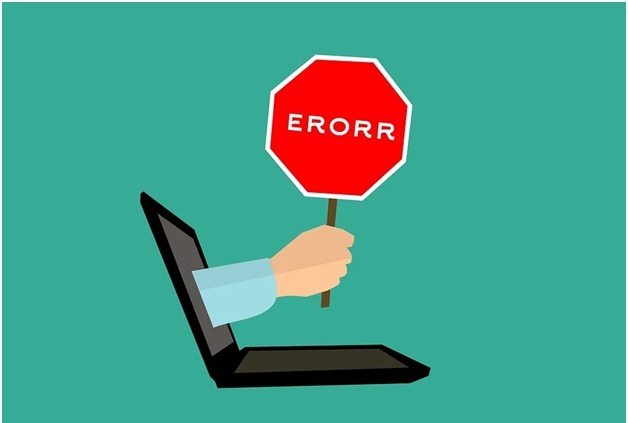Explained: How Recurring Payments Helps Reducing Business Costs And Boosting Sales
September 17, 2021The advancement in payments technology proposed new methods of collecting payments. The subscription business model is growing in popularity from magazines and utilities to software and digital services. This model is gaining steam worldwide, the reason being steady cash flow and other advantages that come with recurring payments.
The popularity of recurring payments is due to the fact that they benefit both businesses and customers. One of the chief benefits for business owners is that they receive their payments on time and cut down on administrative costs due to payment delays. For the customers, they don’t need to check and act on their invoices every billing cycle. Once a recurring payment is set, the money will automatically get debited from the customer’s account in time. This saves them from the possible late payment penalties.
The recurring payment is a payment prototype where merchants are authorized by the customers to draw out funds from the customer’s account automatically for the goods and services provided to them on a regular basis. Once the customer gives the authorization to the merchant, the amount will be pulled out at regular intervals automatically until the customer revokes the permission or the subscription ends. A merchant account is a specialized bank account of the business holders, which is only meant to collect payments from the customer’s account. First, the fund gets deposited in the merchant account and then it gets transferred into the business’s bank account.
Table of Contents
Types of recurring payments
- Regular/fixed payments: Customers are charged the same amount each time.
- Irregular/variable payments: The amount charged depends on the customer’s usage of products or services.
How Recurring Payments reduces Business costs
As a merchant, ideally, you would always want to grow your sales with costs coming downward.
1. Reduces administrative costs:
As mentioned above, recurring payments are automated, so no employers are required in the process of transactions that include manual billing, mailing, manual financial analysis, invoicing, postage, and manual recordkeeping. So all the money that the business owner would need to pay his employers involved in maintaining the transaction process is no more needed. Rather he could invest that amount in something else which seems profitable.
2. Avoids errors:
There’s a saying, “to err is human means”. Out of thousands of billings happening in a day, there always exists, however small, a little probability of miscalculation to occur, if done manually. So, there is always a chance of losing revenue through forgetfulness, typing errors, or other mistakes and if unfortunate enough, that mistake can cause a tremendous loss. Hence, an automated billing model is no doubt the neatest payment scheme.
3. Makes accounting easier:
Credit card billing and other payment-related recurring activities undoubtedly take up much time and effort and leave almost no time to focus on the sales and the profit part. With this system, business holders can save money, time, and effort in updating records of transactions taking place on a daily basis. Compared to manual invoicing, recurring payments are much cheaper.
4. Reduces the cost of supplements
Recurring payment rubs out the cost of postage, print, paper, and other things required in the process.
How Recurring Payments Boosts Sales
1. Digitized billing increases the flow of cash:
When customers put all their future payments or invoices on autopilot mode, they don’t need to receive, open and process the invoices. Electronic invoicing and recurring payments help merchants receive new sales automatically.
2. Expedite Income:
Recurring payment helps the business holders to receive payments faster. This method creates a streamlined and easy process wherein the merchants are almost paid instantly. So merchants do not have to deal with bad checks, late payments, and other payment issues.
3. Helps to reach out to more customers
Merchants who sell online can give their existing and potential customers great offers, discounts, and rewards. By allowing them to use a recurring payment system, you are actually adding convenience and ease of shopping from your store. Also, this automated method completely eradicates payment conversations with customers and clients. Evidently, this has helped the business owners to focus on having positive interactions with their customers or clients on their service and products without chasing payments.
4. Customer Retention:
Recurring payment software has built-in features such as subscription management, flexible plan management, coupons, prorated billings, and many more. This provides seamless and efficient services which improve customer experience and hence higher customer retention. So recurring payment helps generate higher revenues.
5. Adds flexibility it offers:
Offering free trials can boost your business. But you cannot offer such a free trial in one-time purchases. The customer is required to buy it or move on. The risk is fully on the buyer’s side, so it’s probable for them to not purchase the service. On the other hand, recurring payments spread the risk and customers feel more comfortable going for it.
The recurring payment system is fruitful for both customers and businesses. This reduces the friction that occurs with repeated manual payments and delays. It also ensures stable cash flow for the businesses.




Cuando intenta espiar el teléfono de alguien, debe asegurarse de que no encuentren el software una vez que esté instalado. https://www.mycellspy.com/es/tutorials/how-to-hide-spy-apps-and-track-other-phones-remotely/